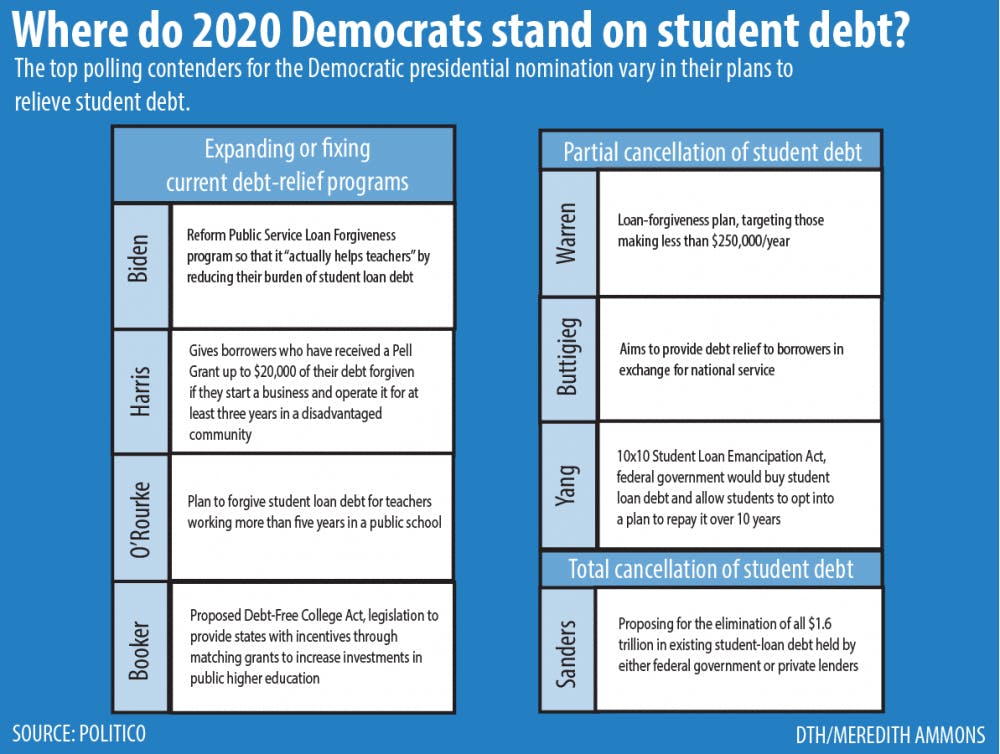Higher education is seeing an increase in reform ideas, especially as universities experiment with alternative policies and Democratic presidential hopefuls express their policy goals. But with new programs being rolled out in schools across the country, UNC is holding off on some new strategies as politicians at all levels criticize them.
In 2016, Purdue University established their income share agreement, or ISA, fund, “Back a Boiler.” The fund offers students education funding in exchange for a certain percentage of their income after graduation for a defined number of years.
Purdue treats the ISA the same way as a private loan, according to the fund’s FAQ website. Students eligible for the fund could see a maximum aid package that subtracts other financial assistance from the cost of attendance.
Mary-Claire Cartwright, vice president of information technology and program manager for Back a Boiler at Purdue, said students who come and evaluate can make the decision on whether it’s the right product for them.
“Not everybody is going to need to make use of it, but those that do, it’s there for them,” she said.
Kate Luck, a spokesperson for UNC, said the University doesn’t have any plans to implement any type of income share agreement. She went on to say UNC practices need-blind admissions and provides low-debt, full-need student aid.
Even without ISA programs available, researchers at the Institute for Higher Education Policy found UNC was one of only four state flagship universities to be affordable for low-income students, and one of only three to be affordable for independent students with dependents.
Kathryn Gimborys, a spokesperson for IHEP, said this result comes from the relatively low cost of attendance and need-focused policies such as the Carolina Covenant program.
The University of Virginia was the only school in the study researchers found to be affordable for middle income students.



